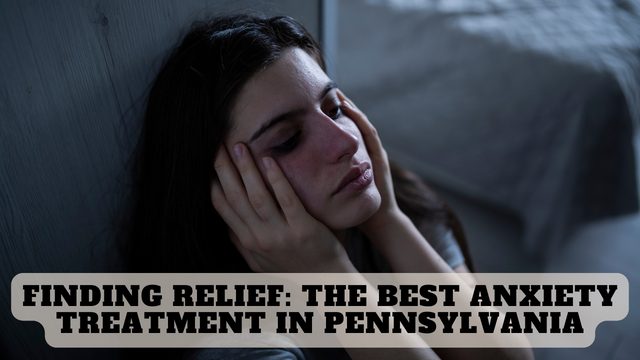
Everyone experiences some level of anxiety. Those who are always worried and feel threatened, on the other hand, may have an anxiety disorder. Several of these disorders are accompanied by recurrent panic episodes, which are defined by a fast building of intense concern and dread over the period of a few minutes.
Anxiety disorders are disruptive to daily life and difficult to manage, yet they seldom justify the degree of anxiety they produce. To reduce your anxiety, you may attempt to avoid specific places, people, or activities.
If you experience anxiety and have tried CBT with little results, dynamichomeopathy may be the next step in your therapy. Our well-known homeopathic physician assists us in providing an effective anxiety treatment. Hundreds of individuals suffering from anxiety treatment in Pennsylvania have come to us for immediate relief from anxiety, panic attacks, and other phobias.
Types of anxiety disorders
Generalized Anxiety Disorder – Even in the lack of a discernable explanation, marked by great fear and tension. The most frequent kind of anxiety disorder is generalized anxiety disorder, which is characterized by patients having difficulties recognizing the precise reason for their suffering.
Panic Disorder – Severe anxiety episodes that occur suddenly. Usually observed by coronary heart palpitations, chest pain, shortness of breath, dizziness, or gastrointestinal troubles.
Social Anxiety Disorder – In social situations, characterized by means of severe shyness and self-cognizance. It might be particular, such as a fear of public speaking, or it can be so severe that the person has symptoms anytime they are with other people. Those who suffer from social anxiety often struggle to perform in front of an audience and are too concerned about being rejected or humiliated.
Agoraphobia – Defined by a strong dislike to situations or locations that a person anticipates will make them feel powerless or terrified. This illness is often confused with a fear of open spaces and nature. It’s possible for someone who suffers from agoraphobia to be unable to use public transportation, such as the escalators, elevators, or buses.
Selective Mutism – Children with this disorder have trouble communicating in some social situations but not at all in others. Some teens and young adults are very shy around certain people, but they don’t have any trouble talking to their other friends and acquaintances.
Separation Anxiety Disorder – Anxiety over being removed from parents or other major caregivers; impacts youngsters. Separation anxiety disorder is characterized by extreme anguish upon leaving a loved one or a safe place. Separation anxiety is prevalent in young children, but it may affect anybody.
Induced Anxiety Disorder – Associated with panic attacks and other symptoms of acute anxiety that might be triggered by drug usage or medication adverse effects.
Read Also: Expert Advice: How to Choose the Best Homeopathic Doctor in the USA
What Are The Symptoms of Anxiety?
- Nervous, restless, or tense
- An ominous feeling
- An increased heart rate
- Breathing quickly
- Sweating, Trembling
- Weakness or tiredness
- Trouble focusing or thinking beyond the concern
- Sleeping trouble
- Gastrointestinal problems
- Problems regulating anxiety
- Desire to stay away from situations that might make you anxious
Causes of Anxiety
It is still doubtful what causes a person to increase an anxiety sickness. Traumatic occasions or lifestyles reports may also aggravate the signs of folks who are predisposed to tension disorders. While physical health troubles may also make contributions to the development of tension disorders in some people, anxiety signs in others can be the first indicator of a extra severe health problem.
Risk Factors
You are more likely to acquire an anxiety disorder if you have the following risk factors:
- Traumatic incidents may cause anxiety problems in children and adults
- Severe illness might induce concern
- Certain personality types are more prone to anxiety
- Other disorders, such as depression, often go hand-in-hand with anxiety disorders
- Family members with anxiety
- Drug or Alcohol Abuse
Treatment may lead to recovery
With appropriate therapy and support, it is feasible to achieve recovery from an anxiety illness. Potential therapeutic interventions for anxiety disorders may encompass:
- Cognitive behavioral therapy
- Exposure therapy
- Anxiety management and relaxation techniques
- Medication
